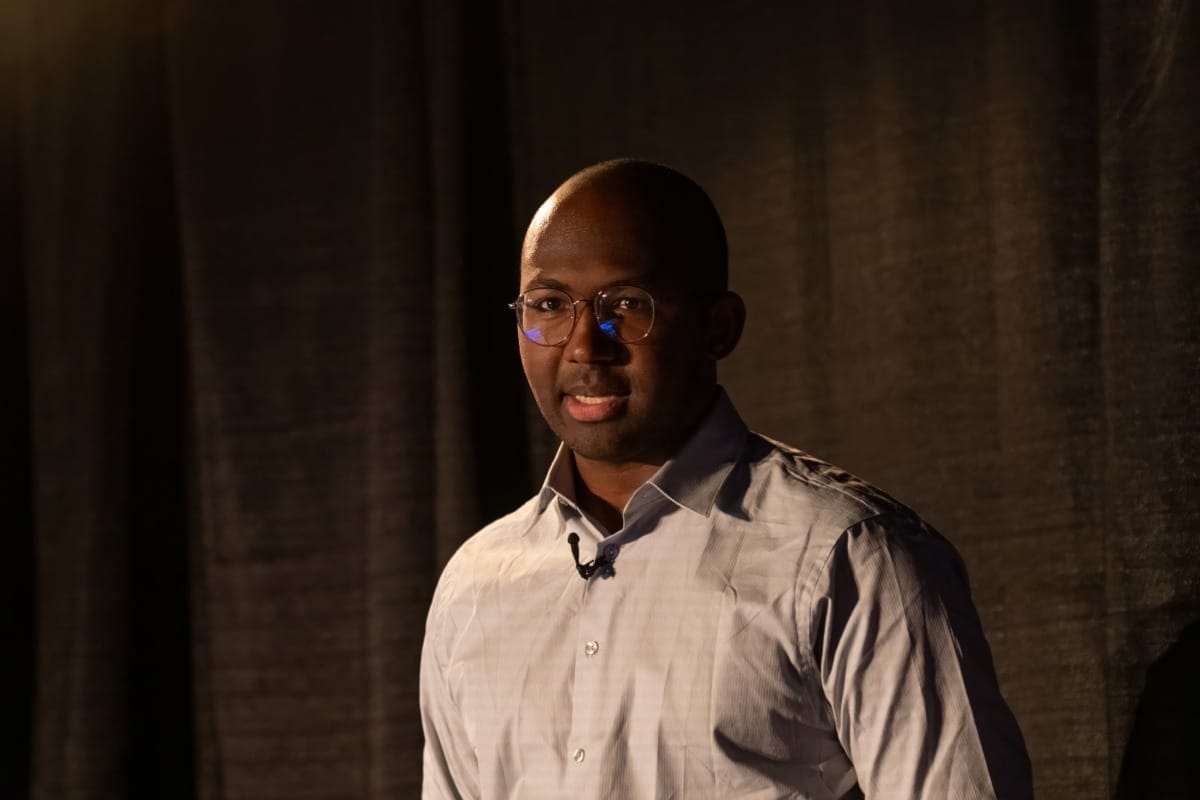
In a challenging environment for the games industry, Ireland is creating “incredible incentives and structures” to support and “elevate” Irish game developers in “the way they deserve to be uplifted”.
This was the observation of Xalavier Nelson Jr., the BAFTA-nominated and Forbes 30 under 30 Studio Head of game developer and publisher Strange Scaffold, one of the key speakers at the FÍS Games Summit 2025, which took place last weekend in Galway, Ireland.
Mr Nelson was responding to the announcement at the Summit of the Digital Games Portfolio, a major new fund designed to further develop and strengthen the Irish games industry’s rapidly growing international reputation.
The Digital Games Portfolio is a €500,000 funding scheme, launched by Screen Ireland, and which will be managed by Ardán, the Galway based organisation supporting creatives in film, TV, games, and animation, and Imirt, the national organisation for game developers and creators in Ireland.
The DGP will fund a variety of new initiatives, the first of which will be IndieDev 2025, a cross-border prototype fund in collaboration with NI Screen to help teams of creators turn their game ideas into prototypes.
The fund will also see Dublin and Galway become ‘incubators’ to support individuals at the early stage of their careers. There will also be a pilot development fund targeting established Irish game studios, to allow them develop IP within their work spaces.
The funding comes at what Ardán CEO, Alan Duggan, called a “pivotal” moment and “an inflection point” in the Irish games industry.
“There’s a tremendous enthusiasm and vigour in the Irish games industry,” he said. “We’re swelling into a wave and that’s really running contrary to a lot of what’s happening internationally.”
Colm Larkin, CEO of Imirt, said: “At a State level, Ireland is looking at games and games developers as a culturally relevant art form and is saying, ‘Yes, we need to support this.’ This is just going to be the first step towards really growing our sector.”
The Minister for Arts, Culture, Media, Communications and Sport Patrick O’Donovan TD said: “The international games industry represents a huge contestable market, one in which Ireland can excel based on our technical, design and storytelling competencies. This funding combined with the recently introduced tax credit for games are key steps along the government’s path to developing a national strategy for games.”
The future of the industry, AI, and creativity
In his address, Xalavier Nelson Jr., said the games industry “makes miraculous art” but is poor at delivering on time, within budget, and in certain instances, quality.
He noted how missing deadlines and exceeding budgets has become normalised within the industry, and said current industry models often prioritise long development cycles for single projects, leading to burnout and limiting opportunities for artists to experiment.
He called on game developers to recognise they are artists, but also encouraged them to develop a strong business sense, in order to “confront these realities”.
Industry legend Tom Hall (Commander Keen, Wolfenstein 3D, Doom), who now works in Ireland as Design Lead at the Galway based Romero Games, explored the creative process.
He encouraged game developers to embrace ‘Drift Time’, his concept of allowing the mind to wander freely in order to create. He encouraged Summit attendees to “play around with an idea” especially if it “may make you feel uncomfortable”.
Hall also advised developers to take a ‘bottom-up’ approach to game creation, in order to work out core gameplay issues and mechanics, instead of top-down design, where the story and universe are prioritised.
AI and its role in the Games Industry was addressed by Finlay MacAree, Technical Director at Xbox Game Studios. He said while AI can enhance the creative process by generating ideas, assets, or code, allowing developers to focus on higher-level design and storytelling, AI itself “will never replace art”.
“I want someone’s actual history, feelings, and emotions in the game,” he said, and warned that relying solely on AI will lead to generic outcomes. He said human creativity and input remained essential as it is informed by personal experiences and emotions, fostering innovation and originality.
As well as national and international guest speakers, the FÍS Games Summit 2025 had close to 300 people in attendance from Dublin, Belfast, Cork, and across Ireland. The Summit has doubled in size from 2024, with the addition of roundtables for developers of marginalised genders; writing and pitching; and a games room where attendees could try out new demos by Irish games companies.















